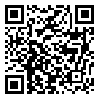

BibTeX | RIS | EndNote | Medlars | ProCite | Reference Manager | RefWorks
Send citation to:
URL: http://hcjournal.arums.ac.ir/article-1-408-en.html
Background & objectives: Job stress can lead to burnout, job dissatisfaction and career change among nurses. Also, self-efficacy is one of the most important factors in the development of healthy social relationships that can enable people to confront better with long-term stresses. Dialectical behavior therapy with emphasis on the principle of change and acceptance provides groundwork for distress tolerance and effective interpersonal relationships. The aim of this study was to examine the effectiveness of dialectical behavior therapy on stress and self-efficacy of nurses.
Methods: This study was a quasi-experimental with pretest-posttest and control group design. Among all nurses in hospitals of the city of Sanandaj during 2014, 30 nurses were selected using multi-stage cluster random sampling method, and randomly divided into two treatment and control groups. Firstly, both experimental and control groups were participated in pretest. Then the experimental group participated in 8 session dialectical-behavior therapy educational program. Each session lasted 2.5 hours. After completion of the training sessions, posttests were given to both groups. Job stress and General Self-Efficacy questionnaires were used to collect the data. Finally, the data were analyzed using SPSS-v.20 and descriptive and analysis of covariance.
Results: The results showed that there were significant differences in job stress (F=49.83, p<0.002( and self-efficacy (F=185.91, p<0.002 (of nurses in two experimental and control groups.
Conclusions: Dialectical-behavior therapy is effective in reducing job stress and also increasing self-efficacy according to the results. Dialectical-behavior therapy with an emphasis on mindfulness and distress tolerance can reduce stress and increase self-efficacy as components of acceptance, as well emotional regulation and interpersonal self-efficacy as the principle of change, and also by strategies such as behavioral skill training, and replacement of maladaptive behaviors with logical and adaptive responses and identifying negative emotions.
| Rights and permissions | |
 |
This work is licensed under a Creative Commons Attribution-NonCommercial 4.0 International License. |


